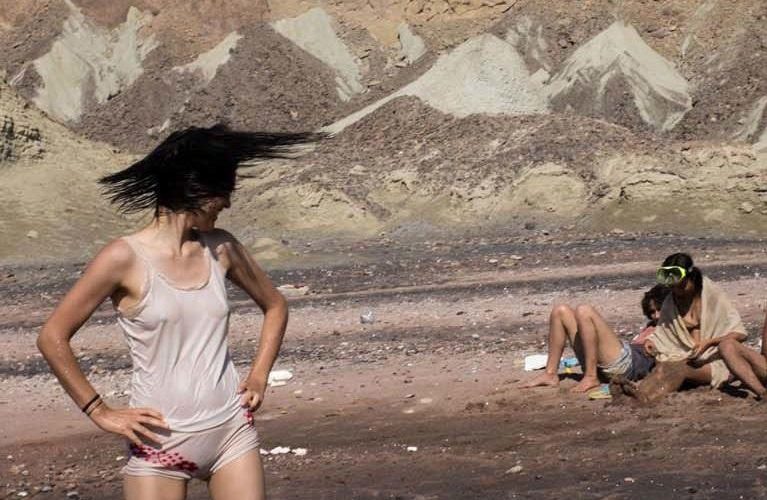While traveling through Armenia last year, Lithuanian photographer Šuns Akis heard rumours of an island off Iran where Iranian youths go to swim, socialise and enjoy a brief moment of freedom. The spot’s isolation means there is no police presence, allowing boys and girls to mix openly, shed their clothes, play music, and swim together. He documented his day with them, and the resulting images are a reminder that, for many, a day at the beach is the ultimate act of teen rebellion.
The first time I heard about the beach was in Armenia, in a chat with a youthful Persian couple. Going to Iran was on my head, and I mentioned that to them. They told me there is a certain island in Iran I must visit, and a certain beach I must find there. All that they mentioned to me about the place is that it is too hot in the summer, and that many Persian free spirits flock from all over Iran to spend the winter. I marked a fat red ‘X’ on my map.
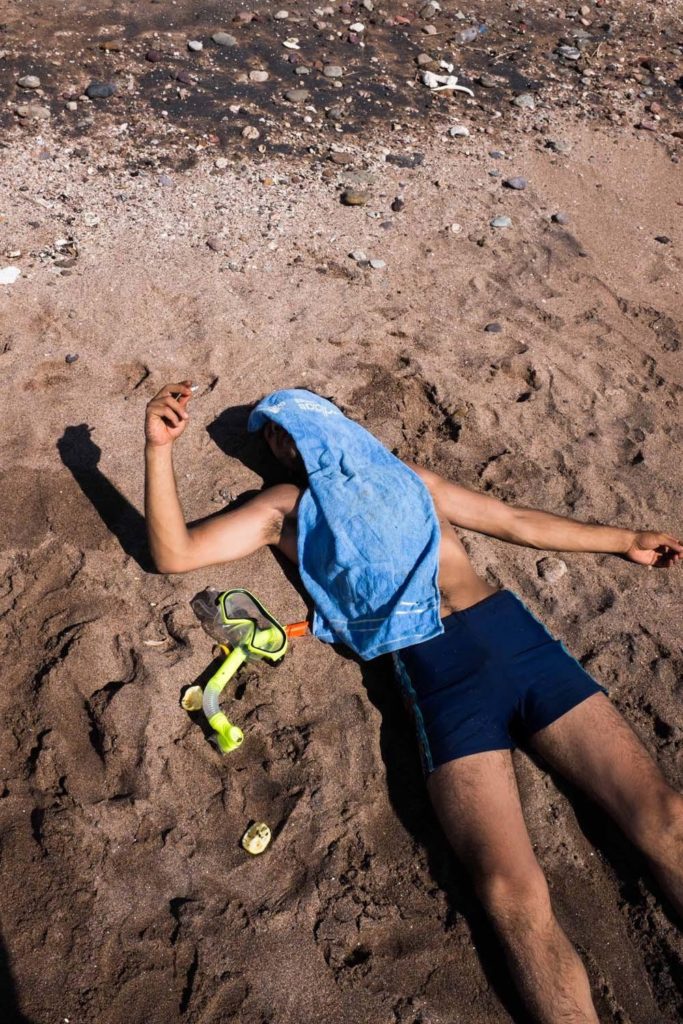
The island is located in the South of Iran, in Hormuzgan. That having become my destination, I left Armenia and entered Iran. The second time I heard about the island and its hospitable community was in Yazd from a Kurdish shopkeeper selling nomad carpets. He had been there, and met many of the people I was about to meet. He told me there is a certain beach I must visit, a place where people gather to relax from the pressure of the strict Islamic laws that the government has imposed, where music is more important than politics.
When I arrived in one of the islands there I went straight for the beach. I had to climb down a few cliffs and power through soggy, clammy mud. There had been a big storm in the Persian Gulf, and everything was wet. Together with the dark, I climbed upon one of the hills, and that marked a new beginning – I saw a fire burning, and my ears started picking out distinct yet distant music of traditional Persian instruments.
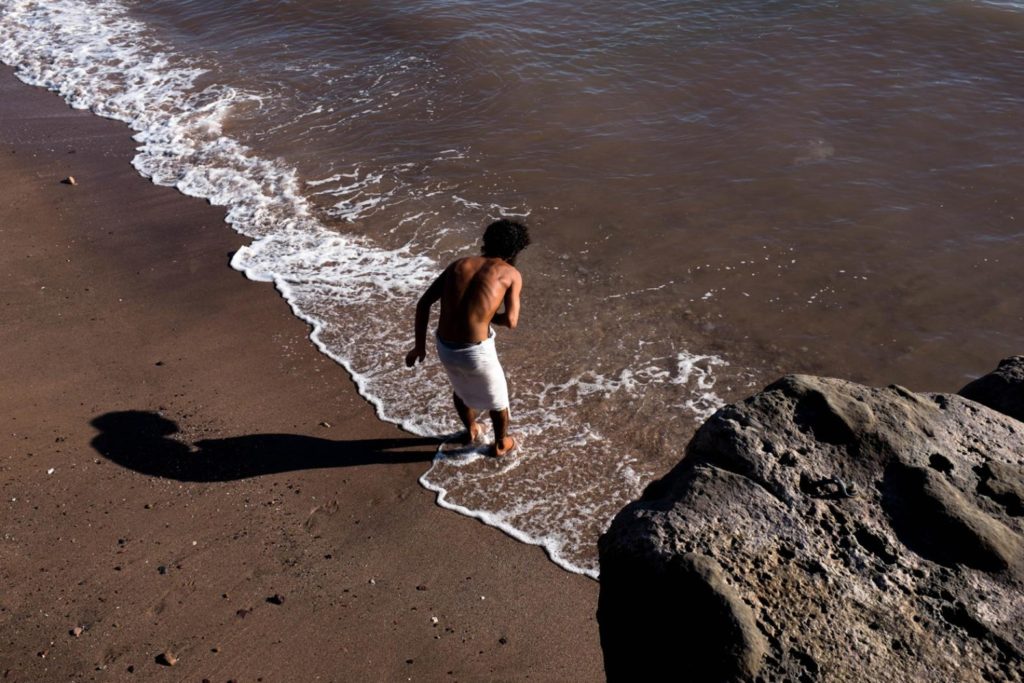
I stumbled down with my heavy backpack, and was welcomed with great excitement. They were drinking wine and eating pasta, and, in Persian custom, offered me all they got. Many did not speak English at all, thus we communicated in warm Persian tone. I was far from fluent, but had been in the country for nearly two months, and, thanks to the combination of tongue and hand, could get around in a lax manner.
They did not have any tents. Circled around the fire was how the nights were spent. Playing daf and setar, the mystical vibe of the instrumental chant drew me back to a dervish Zikr I took part in Iranian Kurdistan. These people were floating in music, which would sometimes lift one of the youth up from the fire and turn them spinning in a Sufi dance. I was happy I did not possess a tent either.
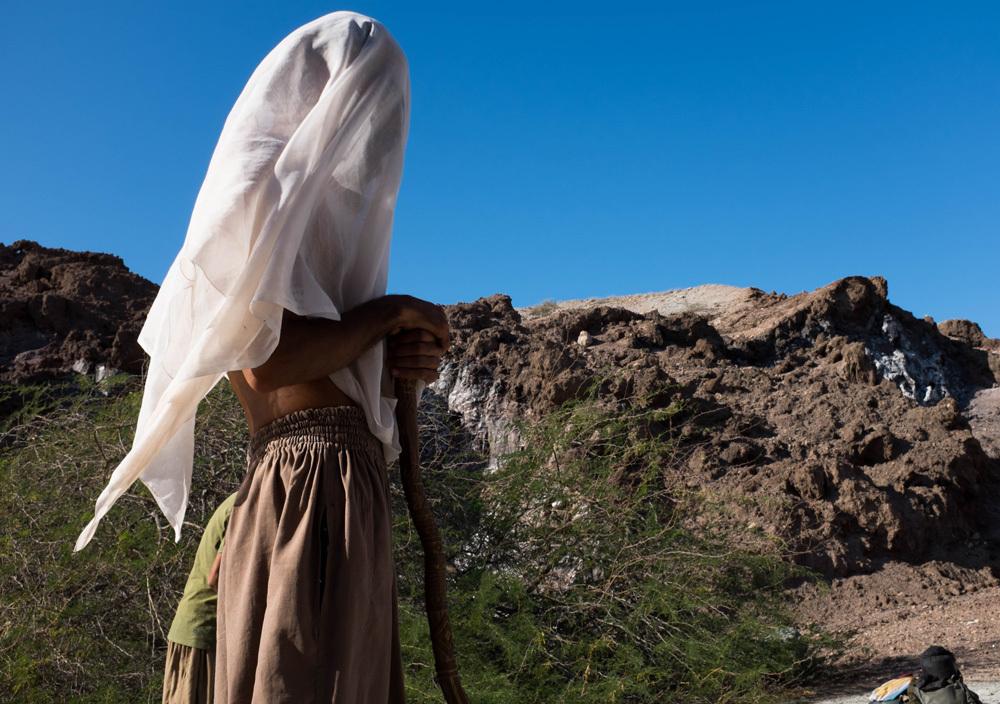
In the late dark hours the storm hit us. There was no shelter, apart from a cave that spat everyone out in a violent blow of wind from its narrow other end. We remained around the fire, as the wind kept picking up. I was sitting inside my soaked sleeping bag, clinging on to my last dry patches, while a young Bandari girl Sheeba watched the waters getting rough and Davud, an Iranian traveler was feeding the fire wood, a Kurd was tapping on his daf, entranced by its deep rhythm, while Khan, a man from Tehran in his mid-30s, smoked opium.
A gust of wind blew off Khan’s backpack cover, and sent it flying high above the beach, towards the other side. I asked Khan if he saw what happened behind him. He lifted his eyes up from the fire and leaned them onto mine. ‘What?’ he asked. I told him the wind picked his backpack cover and shot it out there somewhere. With an excitement in his look he asked me if I saw it. I confirmed. ‘Good.’ he said.
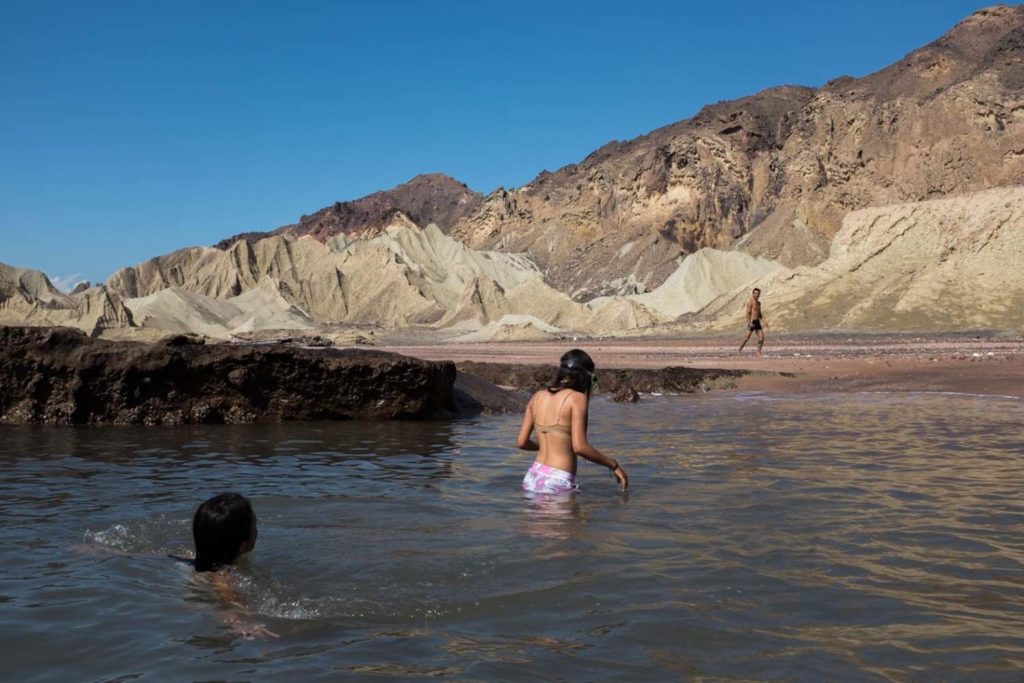
The rain kept chopping us, while things flew past us, carried away by the wind. The storm finished an hour after dawn, an hour before the first smoke of hashish reached for the sky. A new day was beginning, a day on the beach. I spent two weeks in Mufaneq. The first day was the only day with a slightly cooler weather thanks to the storm. All the rest of the time was spent under the scorching sun, morning to night, with only a kufia for shadow and a dip in the sea for cooling. We were sharing together everything that we had, and anyone who would come down our way would bring water and/or food for everyone.
The fact that there is no police in far away places like this attracts youth from all over Iran to spend time together without having to worry about the strict Islamic laws. Persians originally followed the Zoroastrian religion that revolved around holy fire, with the god Ahura Mazda and its prophet that was made popular in the Western culture by Nietzsche – Zarathustra. The way of life imposed by the Islamic government is not favoured by many, thus its boundaries are happily left outside. The beach allows to break out: here the girls can swim in bikini, and the men can choose to wear shorts instead of pants. Attractive, is it not?
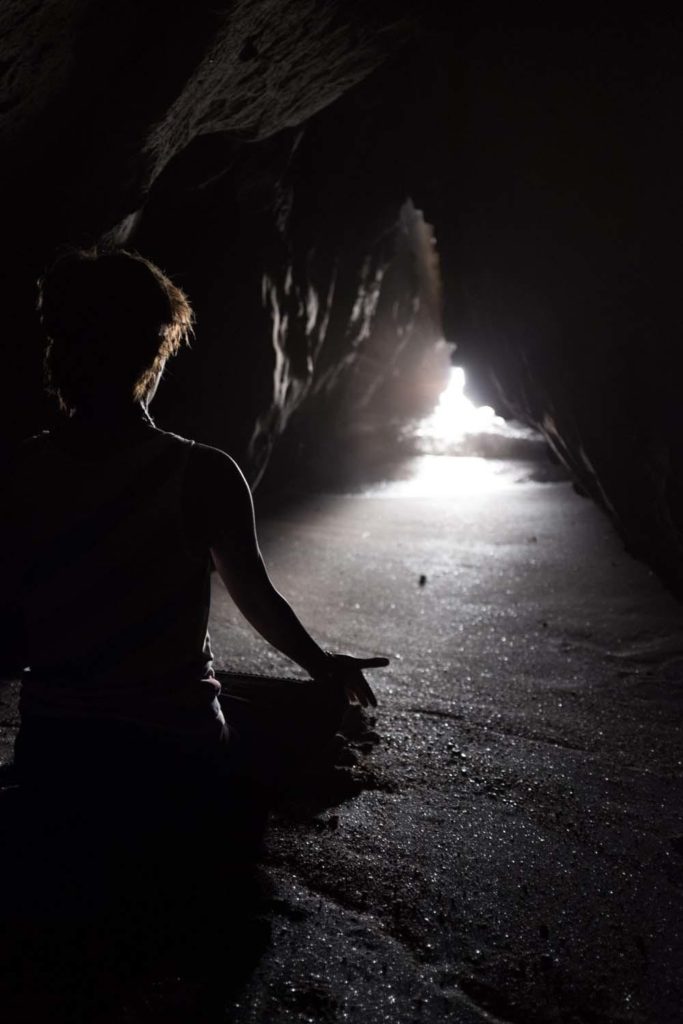
Note: This article was originally published in Vice.com as an interview and has been reproduced by World Wide Travellers with the consent of the author.
